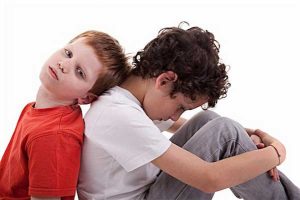 Studies have shown that, barring any abuse or neglect, children fare best when they have the influence of both parents. Unfortunately, relationships between adults sometimes deteriorate to the point where separation is the only answer, leaving the children caught in the middle. One thing most parents going through divorce can agree on, though, is that each wants what is best for their children. While what that best is can be a point of contention, many parents would admit that a life of alternate weekends, a couple of vacation weeks each year, and alternating holidays doesn’t exactly foster strong parent/child ties. That’s one reason why more and more parents these days are ditching these traditional custody schedules in favor of co-parenting arrangements.
Studies have shown that, barring any abuse or neglect, children fare best when they have the influence of both parents. Unfortunately, relationships between adults sometimes deteriorate to the point where separation is the only answer, leaving the children caught in the middle. One thing most parents going through divorce can agree on, though, is that each wants what is best for their children. While what that best is can be a point of contention, many parents would admit that a life of alternate weekends, a couple of vacation weeks each year, and alternating holidays doesn’t exactly foster strong parent/child ties. That’s one reason why more and more parents these days are ditching these traditional custody schedules in favor of co-parenting arrangements.
In a co-parenting situation, exes work together to share their parenting responsibilities much like they did while they were still together. Sometimes that means working cooperatively with someone you may still harbor a lot of anger towards. Letting that anger get in the way can lead to counterproductive efforts that adversely affect your parenting. To figure out if you have this co-parenting thing down pat, read “Are You Co-Parenting or Counter-Parenting? Get It Right For Your Kids!”
 One of the difficult end-products of divorce is learning to navigate the unique challenges of co-parenting. Coordinating schedules and synchronizing parenting styles with your ex while dealing with your own mixed emotions and lifestyle adjustments is hard but necessary for the sake of the children.
One of the difficult end-products of divorce is learning to navigate the unique challenges of co-parenting. Coordinating schedules and synchronizing parenting styles with your ex while dealing with your own mixed emotions and lifestyle adjustments is hard but necessary for the sake of the children. New Jersey Family Law Blog
New Jersey Family Law Blog










